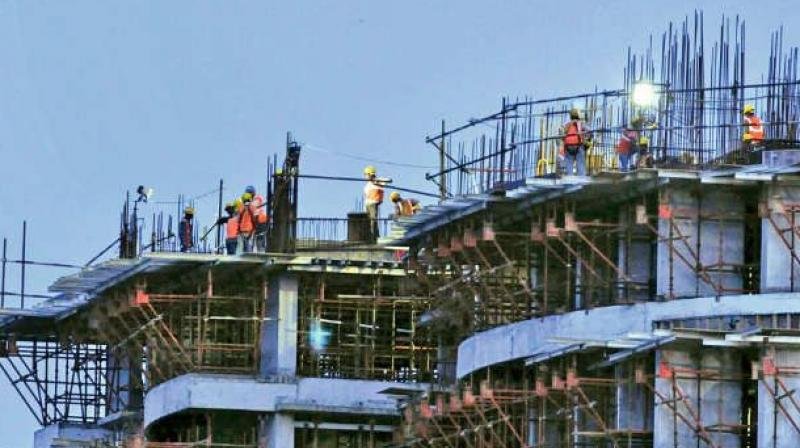Hyderabad: The Telangana Real Estate Appellate Tribunal has issued compliance directions to the promoter of ‘Western Springs’ project for violations under the RERA Act, but the bench remained divided over the extent of penalty to be imposed.
Jai Kumar Tawrani had filed a complaint alleging that Western Constructions, the promoter of the Western Springs project, had failed to disclose that a portion of the project land in Survey No. 341 was classified as “prohibited property” under the Telangana Assigned Land (Prohibition of Transfers) Act. He said the promoter had not declared ongoing litigation related to the land in its RERA filings.
In its order dated April 8, the tribunal found that the promoter had violated major provisions of the Real Estate (Regulation and Development) Act, 2016 and the Telangana State RERA Rules, 2017. The tribunal unanimously directed the promoter to submit a revised Form-B declaration and an updated legal title report within 10 days and to upload details about litigation and land classification on the RERA portal.
On the monetary penalty, tribunal chairman A. Rajashekar Reddy directed that it be enhanced from Rs 1.11 crore to Rs 2.23 crore, holding that the promoter willfully concealed critical information. He rejected the appellant’s demand for blacklisting the promoter, revoking the project registration or cancelling executed sale deeds, stating that such reliefs were outside the scope of the RERA Act.
He noted that a higher financial penalty combined with public disclosure would serve as a deterrent while safeguarding homebuyers’ interests.
P. Pradeep Kumar Reddy, member (judicial), did not support enhancing the penalty immediately, arguing that the promoter should be given a final opportunity to rectify the violations. He held that if the promoter failed to comply with the directions, only then should a penalty be considered.
Chitra Ramchandran, member (administrative), recommended a penalty of Rs 17.32 crore, 1.5 per cent of the project cost of Rs 1,154.57 crore. She reasoned that the promoter had deliberately concealed crucial facts that directly impacted hundreds of buyers.
Due to this difference of opinion, and since the RERA Act does not provide a mechanism for resolving such disagreements within the bench, the tribunal left the matter open-ended. It stated that parties were free to approach the appropriate forum regarding the imposition of penalties.
The tribunal also ruled that the appellant, Jai Kumar Tawrani, lacked the legal standing to pursue the appeal as he was not an “aggrieved person” under Section 31 of the RERA Act and therefore dismissed the appeal.
Appellant Tawrani’s advocate Nikunj Dugar said: “Despite the fact that the RERA Act contains no express mechanism to resolve a split decision among its adjudicating members, a clear majority, two out of three, was in favour of enhancing the penalty on Western Constructions and that majority view ought to have been given effect.”
“In view of the differing opinions in the appellate tribunal, there is now confusion over which decision is to be followed, that of the Chairperson, who enhanced the penalty or the dissenting views of the other two members,” High Court advocate Khaja Aijazuddin explained. “The RERA Act, unfortunately, does not provide a clear mechanism to resolve such deadlocks within the tribunal.”
Aijazuddin said the complainant could file a second appeal before the High Court challenging the appellate tribunal’s order. The High Court may either confirm the chairperson’s enhanced penalty, reduce it or even increase it further,” he added.





